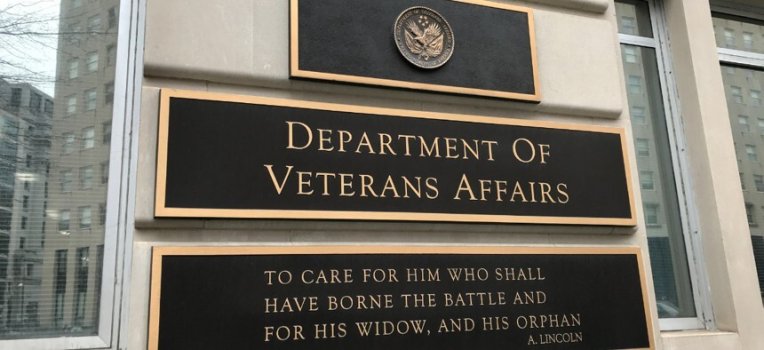K
Kathleen Martin
Guest
Officials at the Department of Veterans Affairs are looking to increase efficiency and optimize their clinicians’ professional capabilities, featuring advanced artificial intelligence and machine learning technologies.
In a November presolicitation, the VA seeks to gauge market readiness for advanced healthcare device manufacturing, ranging from prosthetic solutions, surgical instruments, and personalized digital health assistant technology, as well as artificial intelligence and machine learning capabilities.
Dubbed Accelerating VA Innovation and Learning, or AVAIL, the program is looking to supplement and support agency health care operations, according to Amanda Purnell, an Innovation Specialist with the VA
“What we are trying to do is utilize AI and machine learning to remove administrative burden of tasks,” she told Nextgov.
The technology requested by the department will be tailored to areas where a computer can do a better, more efficient job than a human, and thereby give people back time to complete demanding tasks that require human judgement.
Some of these areas the AI and machine learning technology could be implemented include surgical preplanning, manufacturing submissions, and 3D printing, along with injection molding to produce plastic medical devices and other equipment.
Purnell also said that the VA is looking for technology that can handle the bulk of document analyses. Using machine learning and natural language processing to scan and detect patterns in medical images, such as CT scans, MRIs and dermatology scans is one of the ways the VA aims to digitize its administrative workload.
Staff at the VA is currently tasked with looking through faxes and other clinical data to siphon it to the right place. AVAIL would combine natural language processing to manage these operations and add human review when necessary.
Purnell said that the forthcoming technology would emphasize “streamlining processes that are better and faster done by machines and allowing humans to do something that is more kind of ‘human-meaningful,’ and also allowing clinicians to operate to the top of their license.”
She noted that machines are highly adept at scanning and analyzing images with AI. The VA procedure would likely have the AI technology to do a preliminary scan, followed by a human clinician to make their expert opinion based on results.
Continue reading: https://www.nextgov.com/emerging-tech/2021/12/va-aims-reduce-administrative-tasks-ai-machine-learning/187310/
In a November presolicitation, the VA seeks to gauge market readiness for advanced healthcare device manufacturing, ranging from prosthetic solutions, surgical instruments, and personalized digital health assistant technology, as well as artificial intelligence and machine learning capabilities.
Dubbed Accelerating VA Innovation and Learning, or AVAIL, the program is looking to supplement and support agency health care operations, according to Amanda Purnell, an Innovation Specialist with the VA
“What we are trying to do is utilize AI and machine learning to remove administrative burden of tasks,” she told Nextgov.
The technology requested by the department will be tailored to areas where a computer can do a better, more efficient job than a human, and thereby give people back time to complete demanding tasks that require human judgement.
Some of these areas the AI and machine learning technology could be implemented include surgical preplanning, manufacturing submissions, and 3D printing, along with injection molding to produce plastic medical devices and other equipment.
Purnell also said that the VA is looking for technology that can handle the bulk of document analyses. Using machine learning and natural language processing to scan and detect patterns in medical images, such as CT scans, MRIs and dermatology scans is one of the ways the VA aims to digitize its administrative workload.
Staff at the VA is currently tasked with looking through faxes and other clinical data to siphon it to the right place. AVAIL would combine natural language processing to manage these operations and add human review when necessary.
Purnell said that the forthcoming technology would emphasize “streamlining processes that are better and faster done by machines and allowing humans to do something that is more kind of ‘human-meaningful,’ and also allowing clinicians to operate to the top of their license.”
She noted that machines are highly adept at scanning and analyzing images with AI. The VA procedure would likely have the AI technology to do a preliminary scan, followed by a human clinician to make their expert opinion based on results.
Continue reading: https://www.nextgov.com/emerging-tech/2021/12/va-aims-reduce-administrative-tasks-ai-machine-learning/187310/

